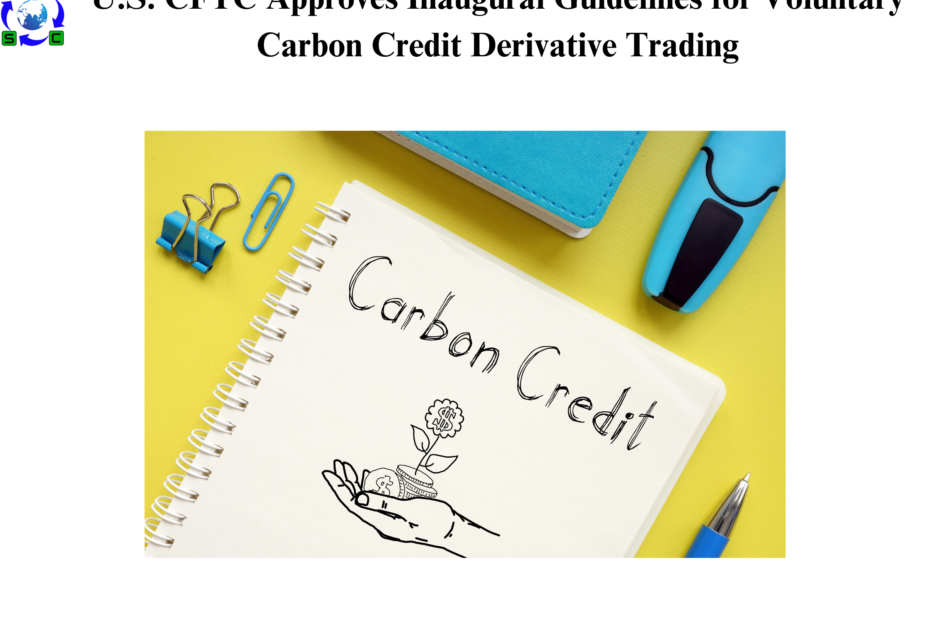 New Market Standards: In an effort to increase transparency and maintain market integrity, the CFTC releases the first rules for the voluntary trading of carbon credit futures in the United States.
New Market Standards: In an effort to increase transparency and maintain market integrity, the CFTC releases the first rules for the voluntary trading of carbon credit futures in the United States.
Curbing Manipulation: The guidelines set forth actions that exchanges may do to stop price manipulation and increase investor trust in a market that is frequently accused of being environmentally deceptive.
The CFTC Releases the First Market Guidelines for Carbon Credits
For the first time, the U.S. Commodity Futures Trading Commission (CFTC) has released guidelines for trading derivative contracts with voluntary carbon credits. This is a crucial move that will provide the emerging market the much-needed legitimacy and oversight.
Financial instruments called derivative contracts based on voluntary carbon credits are based on the right to release one metric ton of carbon dioxide or an equivalent amount of greenhouse gases. The contracts function similarly to typical derivatives in other financial markets, enabling traders to speculate or hedge against future prices of carbon credits.
Controlling a New Market
The voluntary carbon markets, which have grown independently of official regulation, should become more transparent as a result of the new regulations. These marketplaces have been beset by worries about quality, double counting, and possible price manipulation. By stepping up enforcement of stricter requirements and increasing inspection, the CFTC hopes to solve these problems.
Tightening Up on Greenwashing
Authorities in the United States and Europe are becoming more cautious about greenwashing, which occurs when businesses exaggerate their environmental accomplishments. In an effort to safeguard investors and raise the integrity of the market, the CFTC is aggressively looking into instances of fraud and wrongdoing in voluntary carbon markets.
The U.S. government unveiled new regulations in May to control the utilization of optional carbon credits. The action was taken in reaction to many well-known offset projects that failed to provide the promised reductions in emissions, eroding public trust in the system.
The Carbon Markets’ Future
It is anticipated that these new guidelines would strengthen the market’s assistance in helping businesses achieve their sustainable objectives. Businesses can offset their own greenhouse gas emissions through emission-reducing projects, frequently in poor nations, by voluntarily acquiring carbon credits.
With its action, the CFTC is demonstrating a more robust regulatory approach to safeguarding the legitimacy of these markets and advancing international efforts to tackle climate change and transition to a sustainable future.








 Authorised IMDS & CDX Training & Consulting partner for
Authorised IMDS & CDX Training & Consulting partner for






